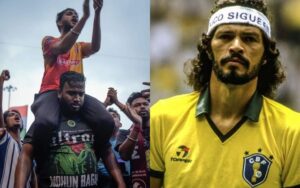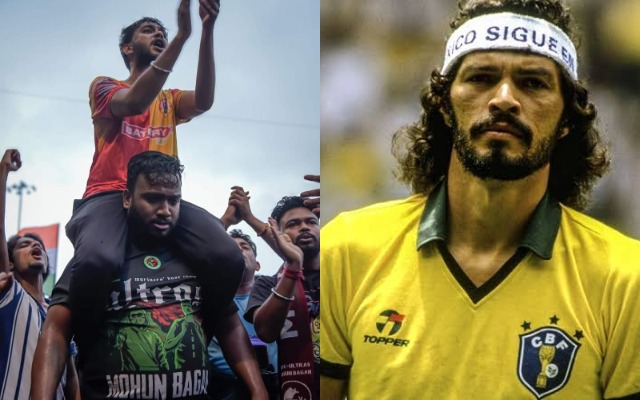
Sportspersons acting according to the dictates of their conscience is hardly something new. The last time Paris hosted the Summer Olympics before 2024 was exactly 100 years earlier. Back then, between the two World Wars, Scotland’s Eric Liddell was one of the most famous sprinters in the world. But in a movie that was subsequently portrayed – with much creative licence – in the Oscar-winning Chariots of Fire, he refused to run in the 100m in Paris because the final was scheduled for a Sunday. Liddell, a devout Christian who died while working as a missionary in Japanese-occupied China towards the end of WW II, was not prepared to compromise his beliefs by running on the Sabbath.
More than four decades later, the Black Power salutes on the podium in Mexico City would effectively end the athletics careers of Tommie Smith and John Carlos. For sportspersons who grew up in totalitarian states and dictatorships, protest was a luxury few could afford. Most simply escaped, as was the case with many of Hungary’s legendary Magic Magyars football team once the Soviet tanks rolled into Budapest in 1956.
But there were those who were prepared to defy powerful men in uniform. Socrates, the medical doctor who was one of football’s most celebrated midfielders in the 1980s, was at the heart of ‘Corinthians Democracy’, a movement that played no small part in ending more than two decades of military rule in Brazil (1964-1985).
In his biography, Socrates spoke of one of his earliest memories – his father burning a book on the Russian Revolution soon after the coup that brought the armed forces into power. “That started my interest in politics,” he would say. “The football came by accident. I was a child of the dictatorship.”
By the time he was a grown man, skilful enough to be given the captain’s armband in a team full of stars at the 1982 World Cup, Socrates had taken his political activism to the next level. Having signed for Corinthians of Sao Paulo in 1978, he was at the heart of a movement to democratise the club, whose functioning till then had mirrored the dictatorship that ran the country.
“Everyone at the club had the same right to vote – the person who looked after the kit and the club president, all their votes had the same weight,” he would tell the BBC on the sidelines of the South Bank Centre’s London Literary Festival in 2010. “It brought a conscience to the people that you could vote and change things – it made people realise together with other movements that were happening in the country that you could make (a) change.”
Some of those street protests with the players wearing ‘Corinthians Democracy’ T-shirts attracted over a million people, and though Socrates left to play in Italy in 1984, the detested military junta would collapse soon after. “That was the greatest team I ever played in because it was more than sport,” Socrates was fond of saying. “My political victories are more important than my victories as a professional player. A match finishes in 90 minutes, but life goes on.”
Socrates left us more than a decade ago, but each time a Subhasish Bose or any other footballer idolised by thousands of fans speaks up against injustice, they are drawing on his indomitable spirit. “People gave me power as a popular footballer,” said Socrates in that long-ago chat with the BBC. “If people don’t have power to say things, then I can say it on their behalf.”
Those protesting on Kolkata’s streets may not be anywhere close to the peerless Socrates in terms of skill, intelligence or personality, but they seem to have understood the essence of his words.
For more sports content: https://revsportz.in/




